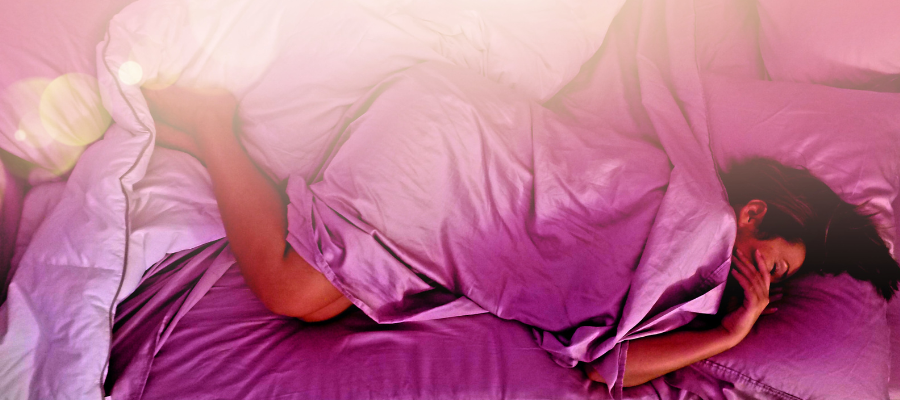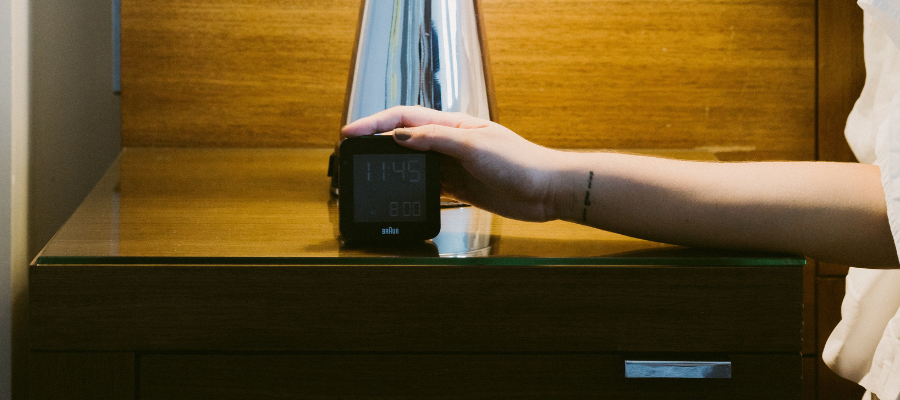5 Reasons why hitting Snooze is a No-Go
Is snoozing bad? - according to most sleep experts, yes. Here are five reasons to not hit your snooze button:
1. You’re more likely to sleep longer than intended
If you’re someone who snoozes every morning, chances are you are conditioning yourself to ignore the sound of your alarm. At least, this is the opinion of Dan Ariely, a psychologist and behavioral economist who answers reader questions in the Wallstreet Journal. According to Ariely, each time you don’t get up at the sound of your alarm, you become more accustomed to staying in bed. This means the more you press snooze, the more you are likely to oversleep.
2. You will likely enter a REM cycle while you’re snoozing, which means less time spent in deep sleep
You may think that hitting snooze will make you more energized, but that’s not necessarily the case. During the nine minutes of snooze, you will probably re-enter REM sleep (Rapid Eye Movement Sleep), instead of getting more of the deep restorative sleep that we all need.
Some researchers don’t think this is all that bad. In fact, sleep expert David Dinges has argued that snoozing makes for an easier transition into the waking state, especially if you’re not getting enough hours of sleep. Ideally, though, you want to spend as much time as possible in deep sleep.
3. Sleeping too long can cause daytime fatigue and grogginess
When you snooze beyond the normal amount of time, you’re setting yourself up for fatigue and irritability during your day. When we sleep too long (whether it’s by hitting snooze or sleeping in on the weekends) it can lead to sleep disturbances which can cause sleep deprivation, further exacerbating the cycle of fatigue and sleep loss. Maintaining healthy sleep hygiene means sticking to a regular sleep schedule.
4. Snooze time is basically junk sleep
Hitting snooze once? – Maybe. But hitting the snooze button several times in a row each morning is sending you straight back to REM sleep over and over, which doesn’t have any benefit – it doesn’t get you more rested. Moreover, heavy snoozers are at risk for sleep inertia. This is when your body wakes up but your brain hasn’t yet entered a fully conscious state. Not a good way to start the morning!
5. Your snoozing can interfere with your partner’s sleep as well
Many of us don’t sleep alone, and for people who share their bed, a snoozing habit can be extra troublesome. Even if your alarm clock does not wake up your partner, their body likely registers the noise and causes them to enter a lighter stage of sleep.
Rather than worsening the sleep quality of both your partner and yourself, why not help each other get up on time and enjoy the morning?
How to stop snoozing

The simple solution: set your alarm for later. If you’re someone who loves hitting snooze, try setting your alarm clock at the absolute time you need to get out of bed, knowing you have gotten as much sleep as you can. This will also mean more time spent sleeping, which is likely what your body needs.
If you’re someone who just can’t get out of bed, consider getting a sunlight clock, which simulates natural light to help stimulate your body’s cortisol production, helping to wake your body up.
Don’t let snoozing become another obstacle in your morning routine. Get out of bed as soon as the alarm goes off and start enjoying those beautiful mornings with enough time to complete your daily ritual.
Are you getting enough sleep?
If you are prone to hitting the snooze button repeatedly, it might be worth investigating whether you are getting enough, quality sleep.
Typically, adults require seven to nine hours of sleep every night.
A full sleep cycle lasts about 90 minutes, so you should aim for 5 sleep cycles per night. Making sure you take good care of your health by establishing a regular sleep routine alongside nutrition and exercise plans ensures a well-balanced, preventative approach to a long and healthy life.



